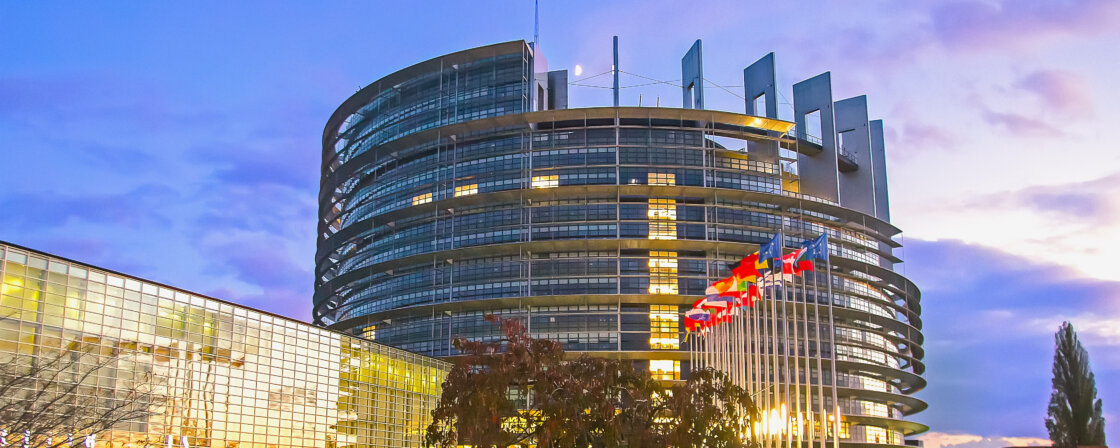What does the European Court of Human Rights do?
The European Court of Human Rights(ECHR) is part of the Council of Europe. Its main function is to interpret the Convention for the Protection of Human Rights and Fundamental Freedoms. It is based in Strasbourg and is tasked with deciding cases involving human rights violations by member states. Its activities include:
- Receiving complaints: the ECtHR is responsible for receiving complaints from individuals, groups of individuals or states who believe that their rights guaranteed by the Convention for the Protection of Human Rights and Fundamental Freedoms have been violated. In practice, these complaints are most often directed against decisions of the Constitutional Court.
- Adjudicating cases: when the ECtHR accepts a complaint, it starts a procedure in which ECtHR judges analyse all the evidence to determine whether a violation of rights has actually occurred. Based on the outcome of the proceedings, they may order the member state to take specific remedial measures, such as compensating the victims or recommending changes to legislation and legal practice. However, the ECtHR cannot directly overrule a national decision.
- Interpretation of the law: As the rights and freedoms enshrined in the Convention are not always precisely defined, it is for the European Court to decide how they should be applied to specific situations.
- Precedent-setting: ECtHR judgments have a meaning corresponding to legal precedents. This means that the Court’s decisions create principles that are subsequently used to deal with similar cases.
Are you solving a similar problem?
Have your rights guaranteed by the Convention been violated?
An available attorney can help you. We can help you enforce your rights, whether in local courts or the European Court of Human Rights.
I want to help
- When you order, you know what you will get and how much it will cost.
- We handle everything online or in person at one of our 6 offices.
- We handle 8 out of 10 requests within 2 working days.
- We have specialists for every field of law.
European Convention on Human Rights
The full title of the Convention for the Protection of Human Rights and Fundamental Freedoms is the document on which the European Court bases its decisions. Its aim is to guarantee respect for human rights and freedoms in European countries.
The Convention focuses on a wide range of areas, including the right to life, the prohibition of torture, the prohibition of slavery and forced labour, the right to a fair trial, freedom of thought, conscience and religion, freedom of expression, freedom of assembly and association, and the right to respect for private and family life.
The Convention also regulates the principles of interpretation of the law. It establishes a margin of appreciation that allows judges to consider the particular cultural, social, historical and other specificities of individual states. It also introduces the principle of subsidiarity, which assigns primary responsibility for the protection of human rights to nation states, and the principle of evolutionary interpretation, which allows courts to respond to changes in social norms and values. This ensures that the rights and freedoms guaranteed by the Convention are interpreted in accordance with contemporary conditions and standards.
Judges of the European Court of Human Rights
The judges of the European Court are elected by the Parliamentary Assembly of the Council of Europe, which consists of 306 members elected by the national parliaments of the member states (including ours). They are elected from a list prepared in advance. Each Member State has three candidates. The judges are elected for a term of 9 years and can only be elected once.
Tip for article
Tip: How exactly do judges work in our country, how are they elected, how much do they earn and how to become a judge? Find out in the next article.
Each country has one judge on the ECHR. Our judge is currently Kateřina Šimáčková. Even if a judge is nominated by the state, it does not mean that these judges are acting in its interest. Once they become judges of the European Court of Human Rights, they become independent of the state. They therefore do not decide in favour of their own state.
The judges’ auxiliary body is the court’s office, which employs more than 640 people. About half of these people are lawyers. They are responsible for preparing documents for the judges, etc.
Structure and decision-making
As each state has one judge, the ECtHR has a total of 46 judges. The judges meet in plenary session, but only to elect their Presidents, Vice-Presidents, Registrars and their deputies. In addition, the plenary also deals with administrative matters.
Complaints themselves are decided by a committee of three members if they are recurring matters. It may unanimously reject or accept the complaint. If it is not a recurring matter, it shall be decided by a panel of seven members. It shall decide on its merits and either reject or accept it. This decision can be “appealed” by filing a petition for a hearing before the Grand Court.
If your application for a hearing before the Grand Court is granted, or in the case of a particularly important complaint, it is referred to a 17-member panel whose decision is final and unalterable.
Tip for article
Tip: You can read how the court proceedings in the Czech Republic are conducted in our article.
Whether the state has actually implemented the measures granted by the European Court is subsequently reviewed by the Committee of Ministers of the Council of Europe. It not only oversees the payment of compensation to the victim, but can also require states to take special measures to compensate the victim and avoid similar injustices in the future. In some cases, the Committee of Ministers may also require the State to change its laws or decision-making practices. The conclusion of the judgment occurs only when the State has complied with all the requirements.
When can you apply to the European Court?
If you believe that your rights and freedoms guaranteed by the European Convention on Human Rights have been violated, you have the option of bringing a complaint to the European Court of Justice. However, this complaint can only be used once you have exhausted all the possibilities offered by national law. Translated, this means that you must first use all the possible remedies available to you. You also have to comply with the four-month time limit from the date of the court’s final decision.
Tip for article
Tip: Wondering what remedies are available to you in criminal proceedings? Then you must not miss our next article.
Example: if the first instance court has ruled against you, you have the right to appeal. The second instance court will then hear your case. If you are not successful, you can still have an extraordinary appeal (for example, an appeal). Once you have nowhere to turn within the Czech Republic, you can take your complaint to the European Court of Human Rights. However, you must comply with the four-month time limit after the court’s final decision.
Tip for article
Tip: Has the court ruled against you and do you want to defend yourself? We will assess your chances of success and take care of preparing an appeal, appeal or constitutional complaint depending on the proceedings and the stage they are at.
Summary
The European Court of Human Rights (ECtHR) is a judicial institution operating within the Council of Europe. Its main task is to ensure respect for the rights and freedoms guaranteed by the Convention for the Protection of Human Rights and Fundamental Freedoms. The ECtHR receives complaints from individuals, groups and states alleging violations of these rights.
The ECtHR has 46 judges, with one judge per member state. The decision-making process starts with a three-member committee and in more serious cases can be referred to a panel of up to 17 judges, whose decision is final. A time limit of 4 months from the final decision of the court applies.
ECtHR judges decide whether there has been a violation of the Convention, interpret its provisions and set legal precedents. ECtHR judgments are binding and Member States are obliged to comply with them, including any changes to legislation or compensation payments.




